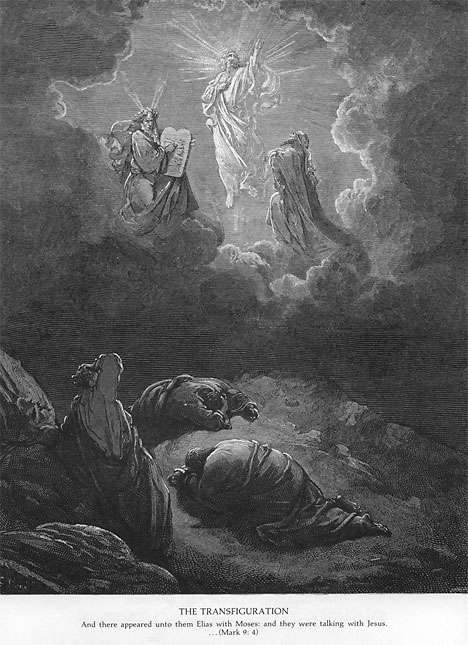Internal Law
“To have a God-given internal moral compass is to have God Himself.”
Maturation is the process of making God’s “external law” into our internal law, our operating, animating principle. This has huge implications for sanctification, but it also explains a lot of what is going on in the Bible’s symbolism and architecture.
[This post has been refined and included in Sweet Counsel: Essays to Brighten the Eyes.]
You must be logged in to see the rest of this post.
Join now for a year for $15!



























September 19th, 2012 at 7:49 pm
Hi Mike,
I think you mean Romans 3:21 at the end there.
Also, if all judgements are “visionary justice” from a father to a son, then how does the lake of fire fit into that pattern?
It’s a great post though. Another thing: could the faith by which we are justified be considered “faithfulness” in the broader sense? I am not suggesting that Paul means “works of the law” in a limiting sense (as per NT Wright), but rather that he is contrasting faithful obedience with faithless obedience. This would seem to fit well with James’s doctrine of justification – which also seeks to unite faith and works.
September 19th, 2012 at 9:31 pm
Thanks Chris – have fixed. It’s the text display in Bible search software – not always clear which applies to which – above or below. I should know Romans better!
Corporately, visionary justice is sheep and goats, or the two goats of atonement. Herod’s Judah is cut off so that Jesus’ Judah can inherit the kingdom.
Yes, faithfulness, but for me that still doesn’t express the personal nature of obedience, which, the more I think about this, is what Jesus lived out and what Paul is talking about. It doesn’t make an obvious distinction between faithfulness in love, and faithfulness simply because of coercion or pride. But yes, it is a faithfulness that expresses itself firstly in desire – a hunger for righteousness – and then in righteous works.
At least, that’s what I’m seeing. Debates on such things get so convoluted that they often lose me in the details. Relationship I can understand. Righteousness is thus always personal, always motivated by love.
September 19th, 2012 at 10:22 pm
Hi,
Ah, yes, that makes sense. Judgement on behalf of the righteous. That’s what you see in Revelation 20 after all – Jesus vindicating his people after ‘Gog and Magog’ have gathered against them.
When I said faithfulness, that’s what I had in mind really – “faith working through love” (Gal 5:6). I think that’s pretty clear from Romans 4, where Abraham is justified because he trusts God by believing the promise. But what I would add is that I don’t think you can separate faith/love from the actions of faith/love.
Should we scrap ‘justification by faith’ and instead say ‘justification by love’? The main problem I see with Roman Catholicism in this regard is not their insistence that believers be justified through baptism/good works etc – rather it is their doctrine of merits that I take issue with. I think Martin Luther was most concerned with this as well – pretty clear from his 95 theses. They need to recover the centrality of union with Christ – the truth which seems to me to be at the heart of the reformation.
September 19th, 2012 at 10:34 pm
For sure – yes I do understand that’s what you meant. But it took me a while to figure out that’s what these guys mean by “faithfulness.” The idea of obeying “because thou art under Covenant” doesn’t communicate the transformative power of God’s love. So we end up with either an antinomian sort of love or a legalistic sort of obedience. We really are a piece of work, us sinners.
September 19th, 2012 at 10:35 pm
Have you listened to Jordan on Revelation 20? Truly awesome.
September 20th, 2012 at 12:00 am
Yeah, see, this is where the RCs score brownie points. They’re straight up with the love talk and it is all very biblical. I think half our problems come with the things we associate with words like “obedience” and “covenant faithfulness”. I guess you’re right, we interpret them in legalistic ways because of our warped minds. God is just a loving father who wants what is best for us!
Never heard the lectures on Revelation, only read his small reader’s guide and a few of his and Leithart’s articles, which I have found to be really good.
September 20th, 2012 at 12:06 am
I have some spare “official” DVD sets. If you’d like one, send me your postal address through the contact page.
September 20th, 2012 at 2:03 am
That is a dangerous offer to make. I should probably inform you that I’m from the UK! I’ll let you retract the offer at this point if you wish
September 20th, 2012 at 9:41 am
That’s OK. Britain needs it.
September 24th, 2012 at 3:00 pm
Mike, this is all very helpful and fills out our conversation on your previous post on “merit.” I’m still chewing on the substitution, sacrificial aspects of the death of Jesus in all this. Thanks for your work!
September 24th, 2012 at 9:32 pm
Thanks Joe. Happy to hear any new thoughts.
April 26th, 2013 at 12:00 am
Hi Mike,
Your recent post reminded me that I forgot to remind you to send me the lectures. I sent the email with my address is a long time ago now though so don’t worry if you don’t have any spares left.
April 26th, 2013 at 12:16 am
Yep – thought I sent it. Will get one in the mail in case I simply lost the plot.